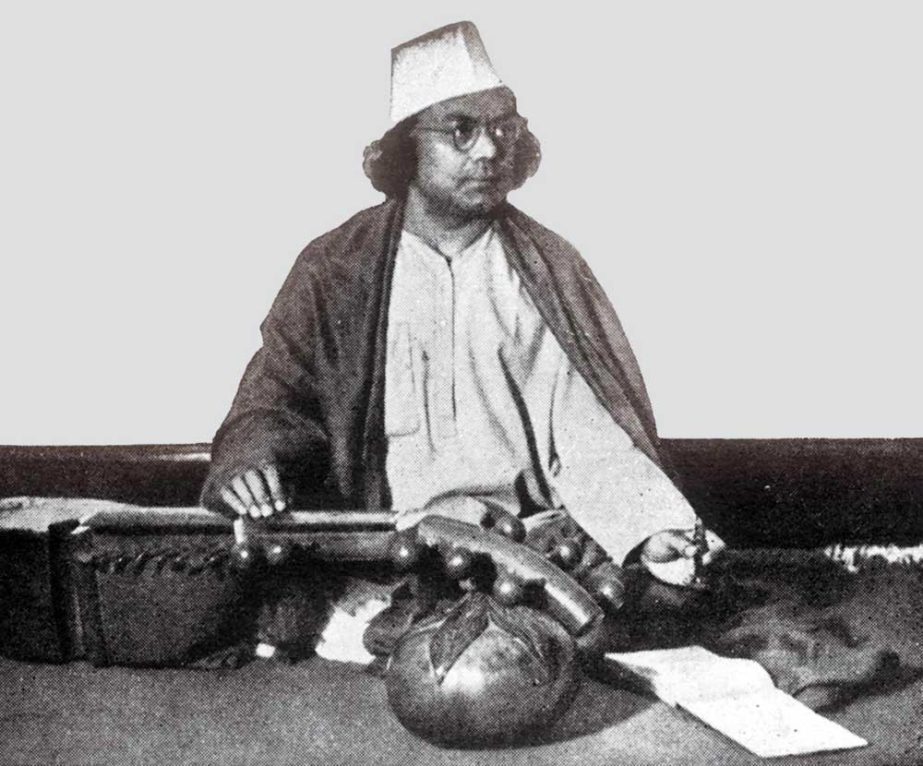
ATM Nurun Nabi :
Kazi Nazrul Islam is known as the rebel poet in Bengali literature and has been recognized as the National Poet of Bangladesh. The British Government jailed him for one year in 1922 for writing the poem ‘Agamani’ published in his own edited newspaper Dhumketu. His famous creations are Agni Bina, Bandhan Hara, Rikter Bedon, Bisher Bansi, Proloy Shikha, Baythar Dan and novel Mrittu Khuda, among others.
Nazrul’s writings are full of hope, energy, aspiration and result. His writings awakened the sleeping people of this subcontinent, showed them ray of better future, made them conscious of their rights to achieve freedom from the bondage of slavery, chains and shackle.
The poet wrote a number of Islami poems and songs. Nazrul has tried to remind the Muslims of this part of this world their glorious past, necessity to ameliorate ethics and morality, to shun fanaticism, superstition and bigotry.
Nazrul writes in Bidrohi:
Say hero! Say erect is my head,
My head bends not,
Bends the Himalayan peak.
Aamar Kaifiot
Hungry child wants not self-rule, wants handful of rice, some salt,
Time passes on, ate not the child, burs his empty stomach
There are lessons for man in the aforesaid five lines of Kazi Nazrul Islam’s two famous poems. He urged the people to keep their heads straight and not to bow to their enemies, capitalists and feudalists, to rise from the state of subjugation and to live for others, and to sacrifice for the cause of the Truth and Justice, instead of shedding tears in temporary catastrophe.
Many poets and litterateurs before Nazrul Islam wrote for the distressed but they were cornered, weak and defensive minority. However, the situation changed with the entrance of Nazrul Islam, making them self-confident, aristocrat and aggressive minority.
In passion, languages and words construction; Nazrul’s works brought new era, revolution and renaissance in Bengali literature. His contribution to the creation of Independent Bangladesh cannot be denied, but a large part of his works have- still remained undisclosed. Sadly, there is no initiative by any quarter to bring those works to light in order to know the real potentials of the poet.
The readers may consider Nazrul as Marxist when they will read the history of the All-India Communist Party with comrade Muzaffar Ahmad as the party president. Again they will treat him as ardent Muslim when they will read his poems like Omar, Khaled, Muharram, Anowar and Qurbani.
Nazrul Islam has portrayed Hazat Omar (RA) in his poem ‘Omar’ as token of righteous administrator. In the poem “Khaled’, the poet took the ‘sword’ for symbol of strength, courage, spirits and truth against injustice and falsehood. Nazrul’s another famous poem is ‘Anowar.’ The hero of the poem is a soldier crying in the condemned cell in Turkiye’s Constantinople for independence.
The profound vigour and vitality of his forceful poetry and charming songs inspired the enchanted people to rise against the British, and the historic liberation movement which led to the emergence of Bangladesh and it owed much to the spirit of freedom pervading the poetic creations. Endowed as he was with creative vision, he dreamt of a society based on equality and free from exploitation, tyrannical oppression. Nazrul’s creation can inspire us much in building an ideal society.
The message of Truth and Beauty of Nazrul’s poetry and songs’ convoy will continue to captivate and vitalise the present as well the future generation.
Kazi Nazrul Islam was born on May 24, 1899 in Churulia village, Bardhawan in West Bengal, India. His mother was Zaheda Khatun and his father Kazi Fakir Ahmed was the Imaam of the local village mosque. The second of three sons and one daughter, Nazrul lost his father in 1908 when he was only 9 years old and his father died at the age of 60. Nazrul’s nickname was “Dukhu Mia” (hapless chap), a name that aptly reflects the hardships and misery of his life right from the early years. His father’s premature death forced him, at the age of 10, to become the Muazzin (a caller for prayer) of the local mosque. This early exposure to the principles and practices of Islam was to have a significant impact on his later literary endeavors.
In 1910, at the age of 11, Nazrul returned to his student life enrolling in class VI. The Headmaster of the school remembers him in the following words: “He was a small, good-looking boy, always the first to greet me. I used to smile at him and pat him on the back. He was very shy.”
Nazrul’s works are reportedly neglected in the academic institutions. Attentions should be given to this so that the present and the future generations know him properly. It is not enough to say that Kazi Nazrul Iskam is the national poet of Bangladesh if his compositions are not read. So, initiatives are necessary to bring him back.
(The writer is a senior journalist).

